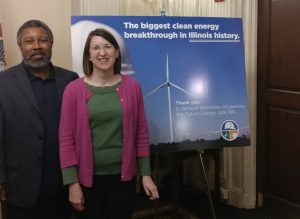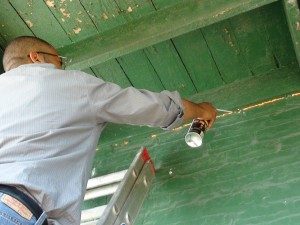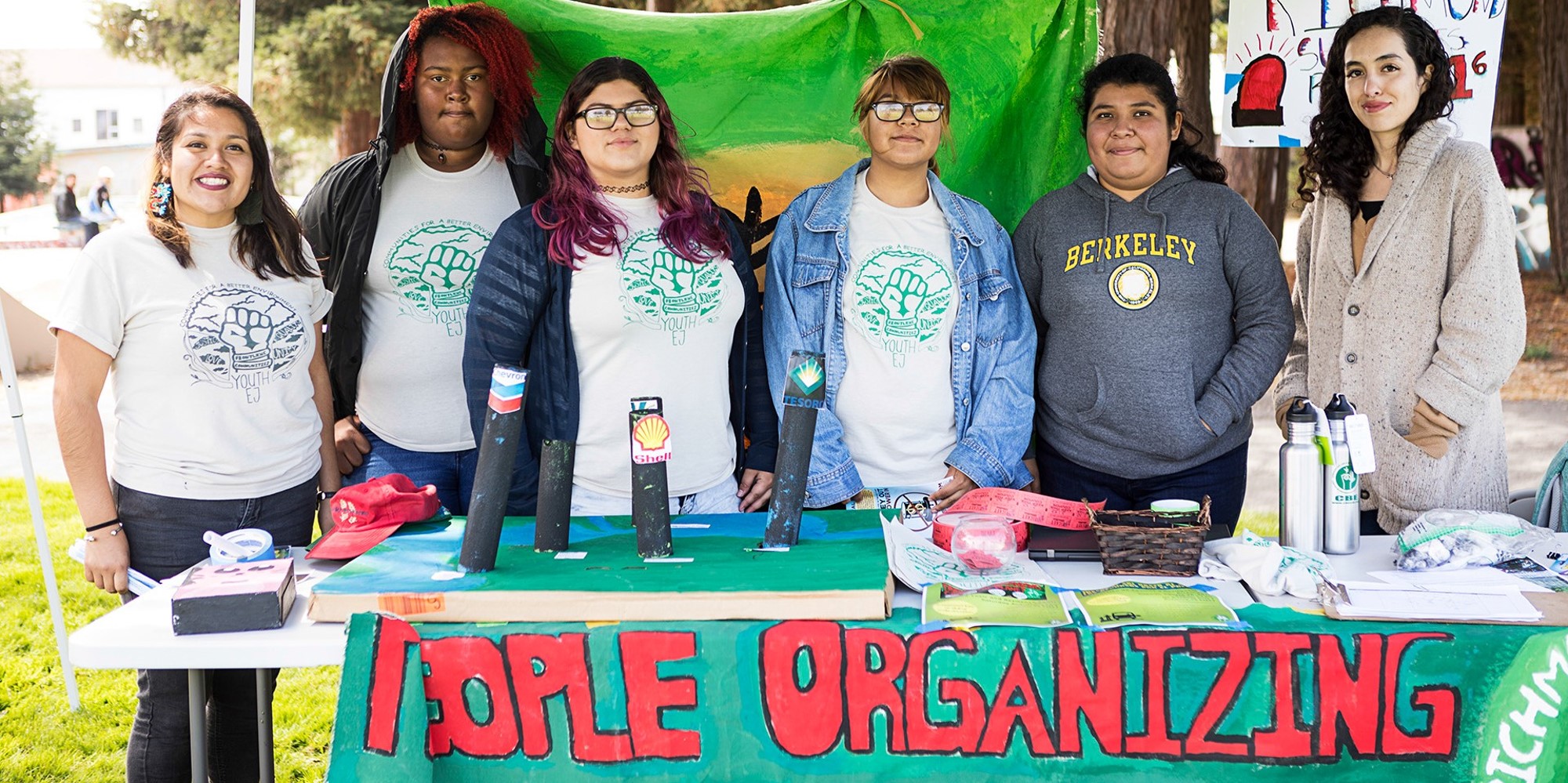Future Energy Jobs Bill Expands Efficiency & Community Solar, Fight Continues for Low-Income Programs
 Late last week, Senate Bill 2814 passed out of the General Assembly, and Governor Bruce Rauner signed it into law earlier today. The legislation represents a compromise between Exelon and other energy stakeholders. Exelon sought help to keep two of its financially distressed nuclear plants open. Environmental advocates, consumer groups, and the wind and solar energy industries sought increases in energy efficiency and renewable generation. The resulting bill is the culmination of two years’ worth of work and passed with bipartisan support.
Late last week, Senate Bill 2814 passed out of the General Assembly, and Governor Bruce Rauner signed it into law earlier today. The legislation represents a compromise between Exelon and other energy stakeholders. Exelon sought help to keep two of its financially distressed nuclear plants open. Environmental advocates, consumer groups, and the wind and solar energy industries sought increases in energy efficiency and renewable generation. The resulting bill is the culmination of two years’ worth of work and passed with bipartisan support.
Elevate Energy was a member of the Illinois Clean Jobs Coalition that supported the compromise result. The Clean Jobs Coalition is composed of Illinois businesses and organizations representing the state’s environmental, business, and faith communities who joined together to improve public health, help consumers, better the environment, and create tens of thousands of new clean jobs across the state. In particular, Elevate Energy supported an increase in energy efficiency for low-income households and a welcoming regulatory environment for community solar.
We have a lot to celebrate in the final bill. We’re happy to see:
- The expansion of existing utility energy efficiency programs, requiring ComEd to achieve 21.5% reduction in energy use by 2030 and Ameren Illinois to achieve 16% reduction in energy use by 2030.
- A new community solar program that will directly target low-income communities to bring them the benefits of inexpensive, clean energy. The legislation puts at least $10 million per year toward that effort.
- Job training provisions that will ensure that low income and environmental justice communities will benefit from the jobs created by the bill.
- A fix to the Renewable Portfolio Standard, which will result in enough wind and solar energy to power nearly 1 million Illinois homes and move the state toward to a climate-friendly economy.
 Unfortunately, the increase in energy efficiency to $25 million per year for ComEd and $8.35 million per year for Ameren Illinois, while an improvement, still isn’t enough to serve low-income families. We will continue to fight for low-income energy efficiency resources for both gas and electric customers.
Unfortunately, the increase in energy efficiency to $25 million per year for ComEd and $8.35 million per year for Ameren Illinois, while an improvement, still isn’t enough to serve low-income families. We will continue to fight for low-income energy efficiency resources for both gas and electric customers.
We now go back to the work we do every day—providing low-income households and communities access to clean energy, making the research case for why low-income populations should benefit from energy innovation first, not last, and continuing to fight for policies and regulations that ensure everyone has access to the state’s clean energy future.



